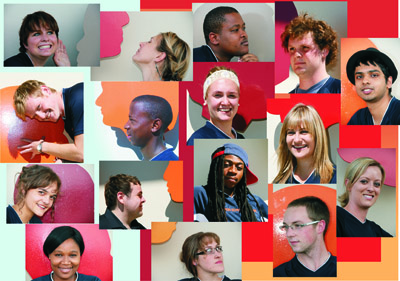|
 |
| 31 July 2013 |
OSM CAMERATA "Die Spokewals" by Hendrik Hofmeyr under the baton of Jan Moritz Onken (YouTube)
After a successful audition, the Odeion School of Music Camerata (OSMC) received an invitation to participate in the 13th International Conservatory Festival which will take place in St Petersburg, Russia, from 1 to 9 November 2013. The festival is a yearly highlight on the concert calendar of the prestigious Rimsky Korsakov Conservatoire.
The artistic panel of the festival, under the leadership of Prof Lydia Volchek, annually selects ten international conservatories to gather in St Petersburg for the festival. Some of the participants include the Tchaikovsky Conservatoire: Moscow, Conservatoire de Paris, Eastman School of Music NY and the Sibelius Academy in Helsinki Finland. According to the Rector of the Rimsky Korsakov Conservatoire, Prof Mikhail Gantvarg, it will be the first ever school of music hailing from Africa to participate in the festival.
The OSMC was requested to give two recitals of 40 minutes each during the festival. Maestro Jan Moritz Onken (Chief Conductor of the OSMC for 2013) will lead the ensemble to St Petersburg. OSMC members will have the opportunity to attend all concerts presented by fellow participants as well as masters’ classes presented by the masters of St Petersburg Conservatoire.
The festival is usually opened and closed with a grand concert presented by the St Petersburg Conservatoire Symphony Orchestra (70 plus members). Last year the opening concert was conducted by the celebrated master, Valery Gergiev (artistic director of the Mariinsky Opera and Symphony Orchestra), while the closing ceremony was conducted by Semyon Bychkov – reciting the Leningrad Symphony by Shostakovich. Both Gergiev and Bychkov are alumni of the St Petersburg Conservatoire.
All recitals at the festival will be presented in the Opera and Theatre Hall of the Conservatoire, as well as in the acclaimed Glazunov Concert Hall located within the colossal conservatory building.
The OSMC will recite a programme of mainly South African composers, with two new works commissioned by the OSM New Music Initiative. These were written by the prolific South African composer, Hendrik Hofmeyr: laureate of the Queen Elizabeth International Composition Competition, entitled Spokewals / Phantom Waltz and Notturno Elegiaco. Spokewals / Phantom Waltz is a challenging work where musicians simultaneously play, sing and speak.
A reworked edition for chamber orchestra of the original string quartet for piano and soprano, Liedere op Boesman-verse, by revered South African composer, Stefans Grové, will also be performed. To commemorate the centenary of composer Benjamin Britten this year, Cantus in Memoriam of Benjamin Britten by Arvo Pärt is also included in the programme.
After participating at the festival in St Petersburg, the ensemble will depart for a two-day visit to Moscow where the OSMC will perform an ’All South African’ programme.